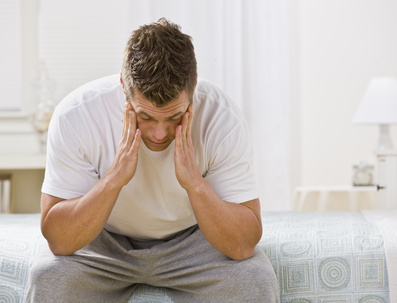Struggling with Body Image

Many adolescents and adults are dissatisfied with their appearance. It is generally thought of as a concern for females, but males also struggle with societal pressures to be thin, youthful and attractive.
Body image is the perception of how you look. It is developed over time from your life experiences, especially during childhood and adolescence. Depending on the level of dissatisfaction you have with your body image, you may suffer from low self-esteem, clinical depression, anxiety and disordered eating.
Negative body image is not a lost cause, and there are things that you can do to improve the way you feel about your appearance. If your weight and body shape are concerns for you, exercise and better nutrition may help you feel better. But it is also important to find an appreciation and acceptance of your body the way that it is. A feeling of worth should come from you, not what other people think of you or your body. Choose friends and partners who respect and care about you as you are.
When to Seek Help
If negative feelings about your appearance are disrupting your life and resulting in unhealthy behaviors, it might be time to seek help. If you are spending hours each day agonizing over your appearance and trying to hide or alter it, you may have body dysmorphic disorder (BDD). This is a chronic mental disorder that sometimes appears during adolescence or early adulthood and is related to obsessive compulsive disorder (OCD). It is characterized by recurring and distressing thoughts that the sufferer cannot control. With BDD, a person becomes so preoccupied with a perceived body defect (that could include body shape or facial features) that it begins to affect his or her social activities, school or work, and family relationships.
Many cases of BDD go unrecognized because those with the disorder may be embarrassed to speak with physicians about their concerns. Once acknowledged as an issue, treatment for BDD could include counseling and antidepressant medications.
Family support is very important to treatment success. Any CDPHP member who thinks she or he or a loved one might be suffering from BDD is urged to call the CDPHP Behavioral Health Access Center at 1-888-320-9584 to ask for help finding a mental health care provider. If you are experiencing an urgent emotional crisis after business hours, call that number and follow the prompts to be connected immediately to a counselor.
Seeking Treatment for an Eating Disorder
Another dangerous condition related to unrealistic body image can be unsafe eating behaviors. If you or a family member have been throwing up after meals or restricting calorie intake to unreasonably low levels in order to stay thin, do not delay seeking help.
Over the past few years, CDPHP reached out to several eating disorder providers in the community to arrange the best possible care for our patients diagnosed with anorexia nervosa and/or bulimia. Our collaborative efforts resulted in the LiveWell Intensive Outpatient Program (IOP) for eating disorders. The LiveWell IOP is coordinated by Albany Psychological Services for Eating Disorders, 1 Pine West Plaza, Albany. CDPHP members with eating disorders can be referred to this program to help them regain a healthier outlook about their eating.
Albany Medical Center will also provide inpatient re-feeding services either before or during participation in the intensive outpatient program. Members must be 13 years or older and have been diagnosed with an eating disorder to qualify for this treatment program.
To learn more about LiveWell, please speak with an intake coordinator at the CDPHP Behavioral Health Access Center during business hours at 1-888-320-9584.
 The Daily Dose
The Daily Dose
Comments are closed.